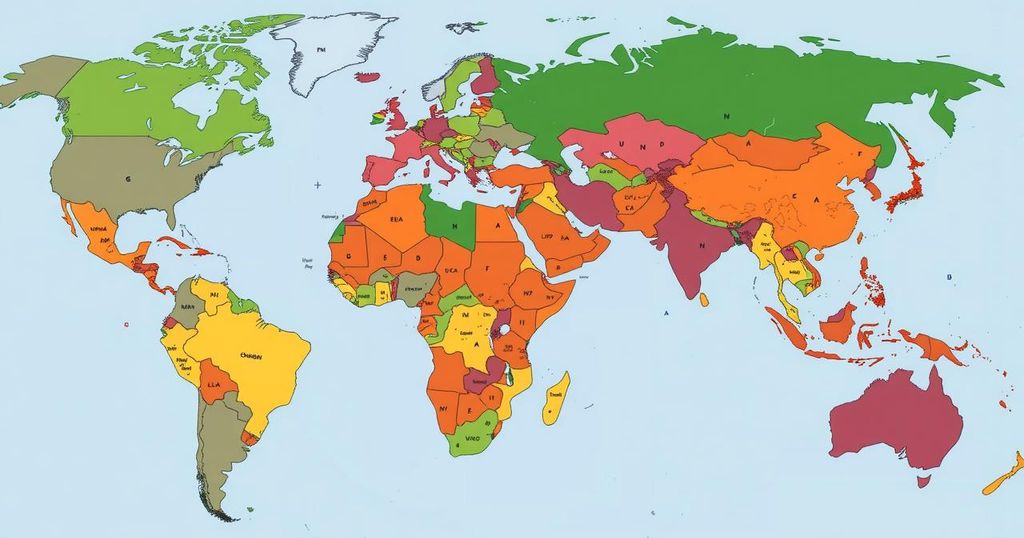The ND-GAIN index for 2021 reveals critical vulnerabilities and readiness levels to climate change across Africa. Countries exhibit varying capacities for adaptation, with some facing significant threats due to insufficient infrastructure and resources. The importance of targeted interventions and enhanced climate finance is emphasized to build resilience in the face of current and future challenges.
In 2021, the ND-GAIN index illustrated varying levels of vulnerability and preparedness to climate change across African nations. The index highlighted critical aspects, such as the threat of climate-related disasters, economic ramifications, and the social impact on impoverished populations. Countries with high vulnerability scores exhibited minimal capacity for adaptation, while those with lower scores demonstrated greater resilience capabilities. The analysis underscores the urgent need for tailored interventions to enhance readiness in the face of climate change challenges, ultimately fostering sustainable development throughout the continent.
Climate change poses significant threats to Africa, characterized by increased frequency and intensity of extreme weather events, such as droughts and floods. The ND-GAIN index serves as a vital tool for assessing countries’ readiness and vulnerability levels relative to climate change. Understanding these metrics is crucial for policymakers and stakeholders aiming to implement effective adaptation strategies and allocate resources efficiently, particularly in the context of Africa where many nations lack the infrastructure and financial capabilities to address climate impacts. The need for robust climate finance mechanisms and international support is paramount, given the projected economic losses and social disruptions anticipated in the coming decades.
The ND-GAIN index provides essential insights into Africa’s vulnerability and preparedness regarding climate change in 2021, revealing significant disparities among nations. With many African countries facing heightened risks, it is imperative to prioritize investment in adaptive capacities and resilience building. Collaborative efforts, enhanced climate finance, and policy frameworks dedicated to sustainability are essential to mitigate adverse effects and support communities disproportionately affected by climate change.
Original Source: www.statista.com






